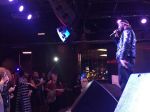“You don’t listen!”
All of us have likely heard these words spat at us in frustration at some point in our lives. And guess what, it’s true! The fact is that no one listens.
By recognizing how you listen (or more accurately, don’t), you can then better understand the way others listen. This in turn arms you with the ability to speak in a way that will have you be heard.
Effective innovators and business leaders need to “sell” their ideas to others. But too often we fall into unproductive behaviors that prevent our message from coming across.
What are these barriers and how can you conquer them? Having given hundreds of speeches in 43 countries, I have learned a few tricks on how to be heard more effectively, whether you’re speaking to a big audience or just one client or employee.
1. To be heard, first hear. While speaking on Capitol Hill in Washington D.C., I became painfully aware that everyone was more interested in being heard than hearing the perspectives of others. How can you be heard in this environment? Listen. Appreciate their point of view, even if you don’t agree with it. People can sense when you are not open to what they are saying and will thus be less inclined to hear you. Acknowledge differences in opinion and appreciate others’ perspectives.
2. Build an emotional connection. When starting a speech, you want to connect with the audience emotionally. Why should the audience care about what I am going to say? What’s in it for them? What benefit will come from listening? Buy-in is rarely done on an intellectual level. People are more likely to listen if they can relate to you and your message on an emotion level. Does what you offer—your product, service or idea—solve a problem? Can you speak to a pain they have?
3. Know your audience’s style. I’ve found that although American audiences typically like my speaking style, people in other countries are sometimes put off by it. For example, if I use my high-energy style in England, I can be viewed as overly enthusiastic and not taken as seriously. I find that a more professorial approach works there. Equally, when speaking to scientists, I use a different style than when speaking to advertising agencies. In order to be heard, match your style to that of the audience.
Click here to read more.
Recent Stories:
DJ Khaled Speaks On Tour Bus Explosion
















